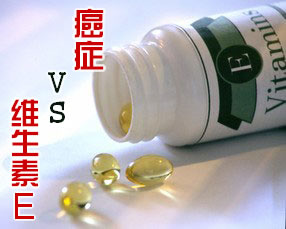美国研究人员发现,男性每日大量补充维生素E可能增加罹患前列腺癌的风险。这与先前一些小型研究认定的抗氧化剂有益男性健康相悖。俄亥俄州克利夫兰诊所研究人员2001年在美国国家癌症研究所的资助下开始研究,希望证实维生素E和硒的抗氧化效果能够降低男性患癌风险。研究结果由最新一期《美国医学会杂志》发表。

研究人员征募3.5万名男性,采用双盲测试法,将研究对象随机编入实验组和对照组,让实验组服用上述一种或两种膳食补充剂,对照组服用安慰剂。
研究人员2008年叫停测试,因为有明确数据表明服用这两种膳食补充剂无益健康。随后,研究人员继续监控研究对象健康状况。四年后,他们发现每日服用400毫克维生素E的研究对象,罹患前列腺癌几率增加17%。至于服用硒的效用还未有定论,不过,研究人员担心也可能出现副作用,正继续监控工作。
英国《每日邮报》11日援引研究带头人、泌尿科医师埃里克·克莱因的话报道:“我为测试结果感到惊讶。”他说,按照设计,这一测试旨在求证维生素E或硒可能有助预防前列腺癌,结果大量数据显示反作用。
相对药物而言,美国政府对维生素等膳食补充剂的销售监管宽松,消费者可以随便走进一家保健食品商店,看到维生素E瓶子上标注着:“有益前列腺健康”。克莱因说:“消费者应当对瓶子或其他包装物上的话持怀疑态度,除非有明确的科学证据。”
克利夫兰诊所这项研究结果让消费者对膳食补充剂的效用再次产生疑问。就在前一天,最新一期美国《内科学文献》杂志一篇研究报告称,中老年女性服用维生素或微量元素补剂可能增加早逝风险。不过,这一报告一经公布便引发不少反对之声。相当比例的美国人服用膳食补充剂,饭后吞下几片乃至一把“小药丸”的现象比比皆是,形成一个年销售额280亿美元的市场。
这两项研究显示,美国人服用维生素等膳食补充剂或许超过人体必需剂量。过犹不及,大量服用膳食补充剂不仅浪费金钱,而且有损健康。专家建议从食物中摄取多种营养成分,多食用蔬菜水果,坚持日常锻炼,保持正常体重。
相关英文论文摘要:
Vitamin E and the Risk of Prostate Cancer
Context The initial report of the Selenium and Vitamin E Cancer Prevention Trial (SELECT) found no reduction in risk of prostate cancer with either selenium or vitamin E supplements but a statistically nonsignificant increase in prostate cancer risk with vitamin E. Longer follow-up and more prostate cancer events provide further insight into the relationship of vitamin E and prostate cancer.
Objective To determine the long-term effect of vitamin E and selenium on risk of prostate cancer in relatively healthy men.
Design, Setting, and Participants A total of 35 533 men from 427 study sites in the United States, Canada, and Puerto Rico were randomized between August 22, 2001, and June 24, 2004. Eligibility criteria included a prostate-specific antigen (PSA) of 4.0 ng/mL or less, a digital rectal examination not suspicious for prostate cancer, and age 50 years or older for black men and 55 years or older for all others. The primary analysis included 34 887 men who were randomly assigned to 1 of 4 treatment groups: 8752 to receive selenium; 8737, vitamin E; 8702, both agents, and 8696, placebo. Analysis reflect the final data collected by the study sites on their participants through July 5, 2011.
Interventions Oral selenium (200 μg/d from L-selenomethionine) with matched vitamin E placebo, vitamin E (400 IU/d of all rac-α-tocopheryl acetate) with matched selenium placebo, both agents, or both matched placebos for a planned follow-up of a minimum of 7 and maximum of 12 years.
Main Outcome Measures Prostate cancer incidence.
Results This report includes 54 464 additional person-years of follow-up and 521 additional cases of prostate cancer since the primary report. Compared with the placebo (referent group) in which 529 men developed prostate cancer, 620 men in the vitamin E group developed prostate cancer (hazard ratio [HR], 1.17; 99% CI, 1.004-1.36, P = .008); as did 575 in the selenium group (HR, 1.09; 99% CI, 0.93-1.27; P = .18), and 555 in the selenium plus vitamin E group (HR, 1.05; 99% CI, 0.89-1.22, P = .46). Compared with placebo, the absolute increase in risk of prostate cancer per 1000 person-years was 1.6 for vitamin E, 0.8 for selenium, and 0.4 for the combination.
Conclusion Dietary supplementation with vitamin E significantly increased the risk of prostate cancer among healthy men.
英文论文链接:https://www.biodiscover.com/news/healthcare/library/1442







